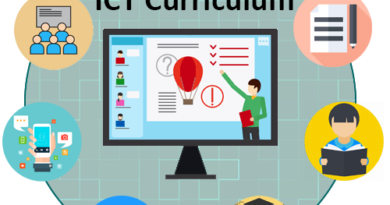Navigating the Future: Impact of Learning Management on Education
Navigating the Future: The Transformative Impact of Learning Management Systems on Education.
The Future of Education is Here: The Impact of Learning Management Systems (LMS)
Are you familiar with the term Learning Management System (LMS)? You might not have noticed it, but chances are that you’ve already encountered this technology without even realizing it. In simple terms, an LMS is a software application that helps educators manage and deliver online courses and materials to their students.
The role of technology in education has been growing rapidly over the past few years, and LMSs have been at the forefront of this movement. With the increasing popularity of online courses and distance learning programs, LMSs have become an essential tool for teachers to reach their students in a more effective and efficient manner.
The importance of LMSs in education can hardly be overstated. They provide educators with a platform to create, manage and deliver course content.
Students can access learning materials at any time from anywhere in the world via computers or mobile devices. Assignments can be submitted electronically and graded automatically – saving time for both teachers and students.
In addition to enhancing convenience for both teachers and students, LMSs allow for more customization and personalization of learning experiences. Students can choose how they want to learn, at what pace they want to learn, as well as receive immediate feedback on their assignments.
It’s clear that Learning Management Systems are revolutionizing education by creating new opportunities for both teachers and students alike. Let’s take a closer look at some key advantages offered by LMS technology in education next!
Advantages of LMS in Education
Accessibility and convenience for students and teachers
One of the most significant advantages of using a learning management system (LMS) in education is its ability to make learning more accessible and convenient for both students and teachers. With an LMS, students can access course materials, assignments, grades, and other relevant information from anywhere with an internet connection.
This means that they can work at their own pace and complete coursework outside of traditional classroom hours. Teachers can also use the LMS to communicate with students in real-time, answer questions, provide feedback on assignments, and monitor student progress.
Customization and personalization of learning experience
Another advantage of using an LMS is its ability to customize and personalize the learning experience for each student. With tools like adaptive learning algorithms, instructors can create individualized learning paths that cater to each student’s unique strengths, weaknesses, and interests. This not only helps students learn more effectively but also makes them feel more engaged with the material.
Increased collaboration and communication among students and teachers
One major benefit of using an LMS is that it promotes increased collaboration and communication among students as well as between students and their teachers. With features like discussion boards, group projects, chat rooms or virtual classrooms or even breakout rooms within a virtual classroom setting , students are encouraged to work together on assignments or projects , ask questions publicly which might help other classmates too , share ideas which might lead into brainstorming sessions which would be a great way to foster creativity in any class . Additionally , it provides these benefits while also giving opportunities for shy or introverted students to participate who might have felt inhibited in traditional classroom discussions .
Impact of LMS on Student Performance
Improved Student Engagement and Motivation
One of the most significant advantages of using an LMS in education is that it can significantly improve student engagement and motivation. With LMS, students can access their course material anytime from anywhere, making it easier for them to keep up with their studies. Additionally, customized learning pathways created through LMS can help students learn at their own pace and retain information better.
LMS also offers features such as gamification and interactive quizzes that make learning more fun and engaging for students. This has been shown to increase student motivation as they are more likely to enjoy the learning process, leading to better performance in assessments.
Enhanced Learning Outcomes
Another benefit of using an LMS in education is that it enhances learning outcomes. By providing a personalized learning experience, students are more likely to understand the concepts better.
The use of multimedia content like videos, images, infographics, animations, etc., also makes the learning process enjoyable while increasing retention rates. LMS also allows teachers to track student progress easily.
Teachers can monitor how well students are doing in their coursework and offer personalized feedback accordingly. This way, teachers can identify areas where a student may be struggling and offer support before it’s too late.
Increased Retention Rates
Retention rates refer to how many students continue with their studies until completion. With traditional teaching methods, retention rates are relatively low as some students may fall behind or lose interest altogether.
With LMS, however, retention rates have been shown to increase significantly due to the personalized nature of the platform’s teaching methods. Students can learn at their own pace while receiving customized feedback from teachers when necessary.
Furthermore, LMS offers features like reminders for upcoming tests or assignments that help keep students on track with their coursework. As a result, retention rates for students using LMS are higher than those who don’t use the platform.
Challenges with Implementing LMS in Education
Despite the numerous benefits of using Learning Management Systems in education, implementing them can be challenging. This section will discuss some of the difficulties that come with integrating LMS into traditional teaching methods.
Technical Difficulties
One of the most significant challenges that come with implementing Learning Management Systems is technical difficulties. Technical issues may arise during installation, configuration, or system updates.
For instance, some students may not have access to a computer or reliable internet connection at home. Also, teachers and students may require training to use the software effectively.
Resistance to Change from Traditional Teaching Methods
Another challenge associated with implementing LMS in education is resistance from teachers who are used to traditional teaching methods. Some instructors prefer face-to-face interactions and feel that the online learning environment hinders student-teacher interaction. Additionally, older teachers may lack technological skills required for seamless integration.
Cost Implications
The cost implications of implementing Learning Management Systems can also pose a significant challenge for schools and universities. The software is expensive to purchase and may require additional costs for hardware upgrades or maintenance services.
Moreover, schools must provide technical support services to help troubleshoot any issues that arise with LMS implementation. While Learning Management Systems have numerous benefits for both educators and learners alike, their adoption can be challenging due to technical difficulties, resistance from traditional teaching methods adherents and cost implications especially for smaller institutions without adequate funds available for technology purchases and infrastructure upgrades.
Future Prospects for LMS in Education
Emerging trends in LMS technology
Learning Management Systems are constantly evolving with new technological advancements. One emerging trend is the use of Artificial Intelligence (AI) and Machine Learning (ML) to provide personalized learning experiences.
With AI and ML algorithms, LMS can analyze a student’s learning behavior and offer customized recommendations for study materials and learning paths. Another trend is the integration of mobile devices into LMS platforms, making education accessible on-the-go.
Potential impact on the future of education
With the current shift towards online education due to Covid-19, it’s clear that Learning Management Systems will play a significant role in the future of education. The potential impact is vast – from transforming traditional classroom-based teaching methods to enabling remote learning for students worldwide.
With advanced features like personalized learning pathways and gamification, LMS holds endless possibilities for educational institutions looking to keep up with modern technological advancements. Learning Management Systems have become an essential tool for modern-day education.
The benefits they offer such as increased accessibility, personalization of learning experiences, collaboration amongst students etc., are just some of what makes them so valuable. And with emerging trends like AI & ML, mobile integration etc., it’s clear that LMS technology will continue to evolve and shape education over time.
Conclusion
Benefits and Challenges of Implementing LMS in Education
To recap, Learning Management Systems (LMS) have brought tremendous benefits to the education sector. The flexibility and accessibility offered by LMS has revolutionized the way students learn and teachers teach.
Customization and personalization of learning have become possible through the use of LMS. In addition, increased communication and collaboration among students and teachers have also been observed.
However, implementing LMS comes with its own set of challenges. Technical difficulties during installation or use can be a major hurdle.
Resistance from teachers or students due to a preference for traditional teaching methods can also be an issue. Implementing an LMS can be expensive, especially for educational institutions with limited budgets.
The Potential Impact of LMS on the Future of Education
Despite these challenges, the potential impact of LMS on education is enormous. With emerging trends in technology such as artificial intelligence (AI) and machine learning (ML), the future possibilities for LMS are endless.
In addition, fully online courses will become more common given their convenience. As we move further into this technological age, it is clear that Learning Management Systems will continue to play a critical role in shaping education’s future landscape.
While there may be some bumps along the way as we adapt to new technologies, it is undeniable that utilizing these systems will help drive better outcomes for both educators and learners alike. Overall, we can look forward to a future where technology seamlessly integrates with education in providing optimal learning experiences that are accessible to everyone regardless of their location or economic background – something truly worth celebrating!



